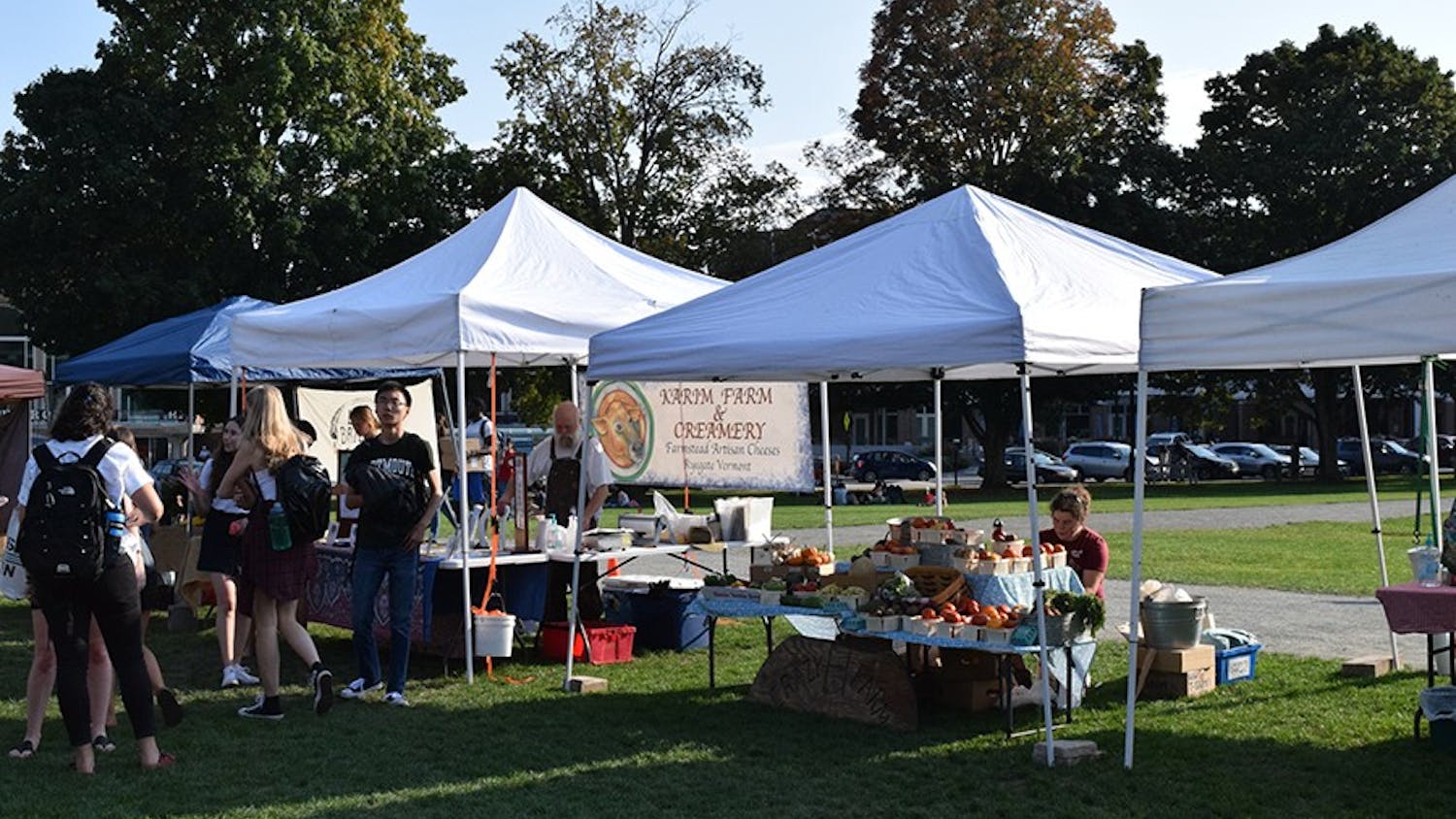In a collaboration between the Dartmouth Center for Social Impact and the Office of Residential Life, Allen House and East Wheelock House each took students on trips to aid hurricane recovery in underserved areas as part of an alternative spring break initiative.
The Allen House trip to New Orleans and East Wheelock trip to Puerto Rico were culminations of a term-long learning initiative that combined academic programming on campus with an off-campus service learning aspect. The DCSI pioneered these efforts for alternative break trips by reaching out to house communities and tailoring trips to each House’s interests, taking into consideration practical concerns like budgets and partnerships.
“I think [the students] learned a lot about the importance of showing up,” Allen House assistant director of residential education Lauren Oliver said after traveling to New Orleans with the Allen House group. “I think it can be really easy at a place like Dartmouth to get lost in your understanding of what you can intellectualize and forget the actual importance of showing up with your physical body to do real work for people in need.”
Allen House’s program, named “Place, Story, and Inequality in New Orleans,” brought 10 students to the Lower Ninth Ward of the Louisiana city. Their program focused on how this underserved area did not receive proper aid after Hurricane Katrina in 2005.
Partnering with Lowernine, a non-profit organization dedicated to restoring houses poorly fixed after the hurricane, students aided re-construction efforts that assisted those who owned homes in the Lower Ninth Ward damaged by the hurricane. John Cho ’22, one of the 10 students on the trip, thought that his experience was enriched by the thoughtfulness Dartmouth students exercised when interacting with the community.
“Everyone was very reflective on the impact of our service,” Cho said. “And I was kind of surprised by how much everyone cared about … whether that impact was ethical and what we were doing in a community like New Orleans from a privileged institution like Dartmouth.”
The workshops, which were part of the term-long learning initiative that preceded the trips, were crafted so that students had a complete understanding of the situation they were attempting to mitigate, according to Allen House professor Janice McCabe. Postdoctoral geography fellow Garrett Nelson taught one of these workshops, which focused on how geography affects the development of cities.
“Especially in the case of Katrina, where the students would be actually living in and working with some of these neighborhoods, thinking about how ... all of those parts came together was really important,” Nelson said. “I’m glad that the alternative spring break wasn’t just kind of parachuting down into New Orleans without spending a lot of time really thinking about its local context, its history, in advance.”
While in New Orleans, students toured the city, ate dinner with people who recounted their experiences with Hurricane Katrina and engaged with the executive director of Lowernine, Laura Paul, as well as other volunteers and community members who were involved with the non-profit’s efforts.
According to McCabe, who participated in the trip, “Our most meaningful conversations weren’t just in the formal parts of programming, but the quiet moments of holding boards, waiting for someone to hammer them in.”
“I hope the trip continues so we can have a sustainable, ethical partnership with [Lowernine],” trip participant Megan Ungerman ’21 said.
East Wheelock House’s trip, named “The Politics of Recovery in San Juan,” similarly called on participants to think critically about how the aftermath of Hurricane Maria, which struck Puerto Rico in 2017, played out on the island. Five students worked with the restaurant-farm El Departamento de la Comida in San Juan to both assist local farms and help create a system that caught rainwater to irrigate crops more efficiently.
“What struck me the most was how much life we packed into each day and how long the days felt,” assistant director of residential education for East Wheelock House Josiah Proietti said. “I think ideally, each House would do something because I think we’re at our best when we’re serving others.”
Not only did students contribute their physical labor to the cause of recovery, but many also had the opportunity to offer up original ideas, East Wheelock House Professor and trip participant Sergi Elizalde said.
“I was very, very proud of the students,” Elizalde said regarding the students’ collaboration with others who were working at El Departamento de la Comida. “There’s this sense of community that I hadn’t seen anywhere else.”
Before the students went to Puerto Rico, one of their workshops focused on the ongoing economic crisis and relief efforts in the aftermath of Hurricane Maria, according to Elizalde. Professor of Spanish and Portuguese Israel Reyes taught students about the politics involved with the island’s recovery.
“I think what came across was that the students were really sensitive to the complexity of the issues,” Reyes said. “I felt like they were ready to listen to Puerto Ricans.”



